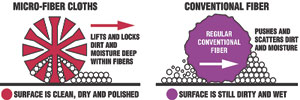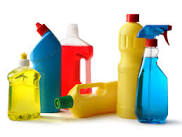
We all get caught up in the commercials on TV and the print ads showing how great specific cleaning products are – how great they smell and how quick they can do the job, but did you know that you have eco friendly and effective methods in your home right now?
This is why I decided to digg an article that was posted on Digg…How to Clean Everything in Your Kitchen Using Stuff From Your Kitchen. I found this article informative and interesting. I knew that we could use household items to clean, but I had no idea as to how many.
Then when I found an article in “The Daily Green” called “7 Smart Uses for Vinegar” I submitted it to Digg. Unfortunately it hasn’t been posted yet, but hopefully it will be found on the site shortly.
We often forget about what we have in our kitchen that is effective cleaning products and more environmentally friendly than most everything that you can purchase on any store self. Having said that you will notice that your local grocery and drug stores are getting better…there are eco friendly choices. But at a cost, why is it that eco friendly products are so much more expensive?
Did you know that Vinegar is effective at killing most mild, bacteria and germs due to it’s level of acidity. It doesn’t just make your mouth pucker…it makes mold shrivel.
Vinegar can be used in:
- Refrigerator
- Oven
- Garbage
- Dishwasher
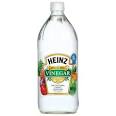 Coffee Maker
Coffee Maker- Glassware
- Metal
- Aluminum
- Brass & Copper
- Plus so much more
Vinegar can be considered a Super Product in your cupboard.
I have to say that while doing this blog I learned a lot about household cleaning products and how toxic the cleaners that we use at home are. Did you know that toxic products are found in your cleaning products?
“More than 56 per cent of all nonylphenols used in Canada are found in cleaning products, notably in toilet cleaners and certain liquid laundry soap”
“Another highly toxic product is 2-butoxyethanol, used in some popular spray cleaners, which has been linked to low sperm counts in men, and learning disorders in children.”
Some of the worst offenders are:
- Phosphorus is usually found in common laundry detergents
- Ammonia found in multipurpose household cleaners
- Nitrogen found in glass and surface cleaning products
Just think when you clean with these products they end up rinsed down the drains. Do you know where this goes? The correct answer is into our waste treatment plants, and if it isn’t caught it will continue it’s travels into our waterways. The above named chemicals will cause excessive plant growth, which will clog the waterways and in turn crowd out animal life.
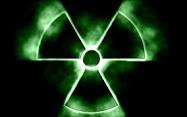
Also consider this…Over 100 chemicals commonly found in homes have been linked to allergies, birth defects, cancer, psychological abnormalities, skin reactions, headaches, depression, joint pain, chronic fatigue, chest pains, dizziness, loss of sleep, asthma. . .the list goes on. Housewives have a 55% higher risk of getting cancer than do women working outside the home. This most likely has to do with the products they use on a daily basis. Nervous disorders and respiratory problems have also been linked to hazardous substances in the home.
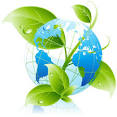
I always thought that having a lemon scent after I cleaned was the most rewarding smell ever…but after my research I now feel that there is no smell to green clean.
There is an alternative to using toxic or non-green products, will you do your part for your household and your environment??? Will you join me in a commitment to Green Cleaning?
What household chemicals do you use?

